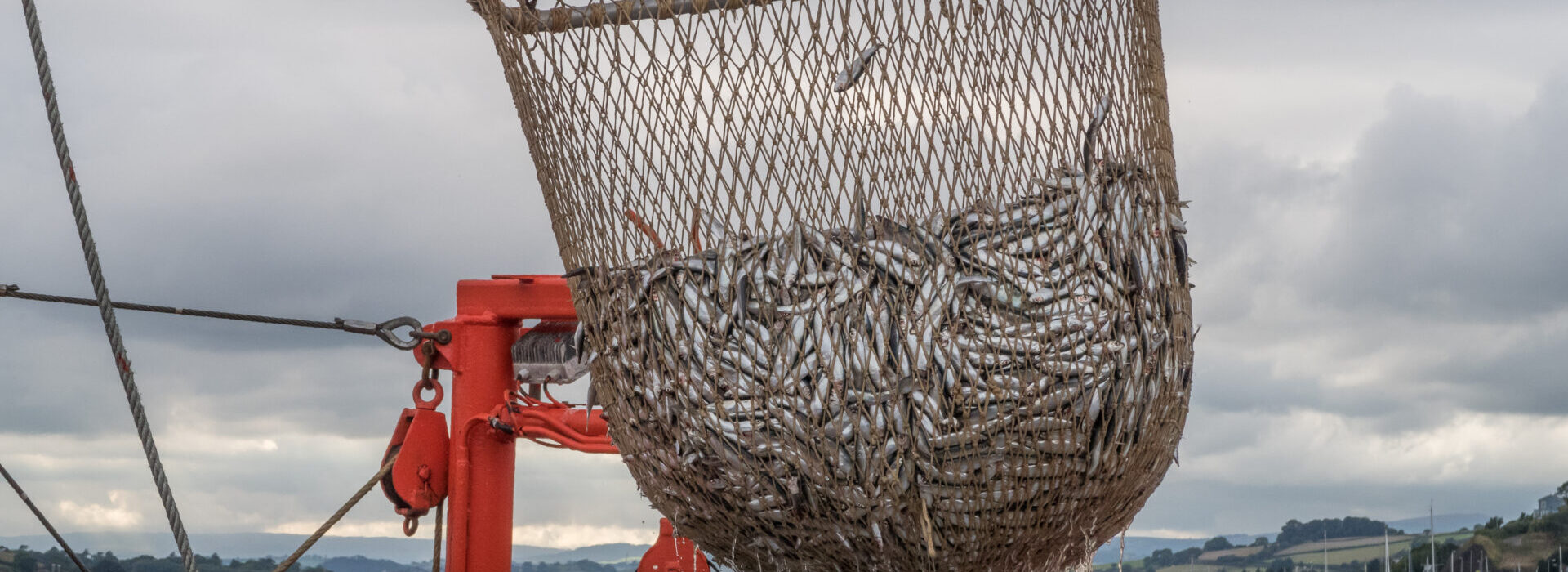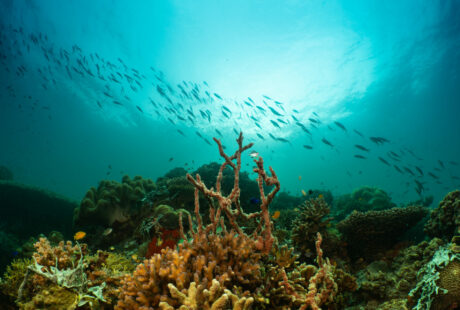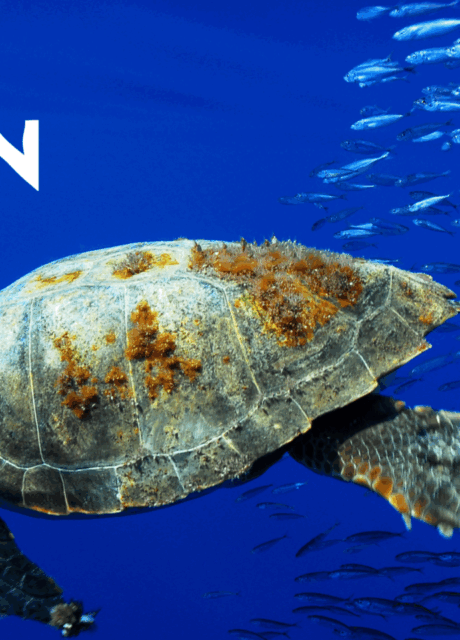Brussels, 5 June 2025. Six leading environmental NGOs warn that the European Commission’s Ocean Pact falls short of delivering enough binding action urgently needed to protect our ocean.
BirdLife Europe, ClientEarth, Oceana, Seas At Risk, Surfrider Foundation Europe, and the WWF European Policy Office welcome today’s announcement of a European Ocean Act, which aims to bring coherence to marine policies.
But they warn that for the Act to be successful, it must lead to the immediate implementation of existing obligations and include legally binding targets and thresholds to pave the way for the conservation and restoration needed for a healthy ocean and strong coastal communities.
The six NGOs stress that, while the Pact acknowledges the importance of ocean protection, it lacks concrete measures to tackle the most harmful activities in European waters, including overfishing, pollution, and destructive activities, in our protected areas. Though the Pact acknowledges it will work on the implementation and enforcement of existing legislation, it fails to outline a concrete plan to tackle this.
In light of the upcoming UN Ocean Conference (UNOC) in Nice, the NGOs highlight that the Pact specifically falls short on:
- Concrete steps to phase out destructive fishing practices, such as bottom trawling, in Marine Protected Areas;
- A clear roadmap of action to ensure implementation of existing targets and obligations, including under the Common Fisheries Policy and environmental legislation, matched with adequate funding for enforcement;
- Clear public financial commitments for marine conservation and restoration and towards small-scale, low-impact fishers to enable a just transition;
- Proposing meaningful measures to reduce pollution at its source, including plastics, nutrients, and chemical contaminants;
- A roadmap for a just transition to a regenerative blue economy.
At the same time, the NGOs welcome:
- The Commission’s commitment to better coherence and to scale up effective implementation of the Nature Directives and Nature Restoration Law;
- The Commission’s commitment to a precautionary approach to the destructive activities of deep-sea mining and marine geoengineering;
- The announcement to push for the conclusion of an international agreement which would provide additional rules to regulate subsidies that incentivise overfishing.
As the Pact moves into the implementation phase, the NGOs urge EU institutions and Member States to strengthen it through concrete follow-up measures and ensure that ocean protection becomes central to ocean-related EU laws.
Cyrielle Goldberg, Marine Policy Officer at BirdLife Europe said: “The Oceans Pact is a welcome signal that ocean protection is a priority and requires greater coherence. But coherence means more than aligning strategies—it means using public money to fund what truly benefits people, and ensuring that laws are properly enforced. Without dedicated public funding to deliver on its goals—and a clear commitment to end harmful subsidies—this initiative risks becoming yet another well-meaning promise lost at sea. If the EU is serious about restoring marine ecosystems, supporting sustainable fisheries, and safeguarding coastal communities, it must match words with money.”
Juliet Stote, Law and Policy Advisor on Marine Ecosystems at ClientEarth said: “While the Commission promises in the Ocean Pact to work on enforcement, it falls short,offering no concrete plan for how ocean laws which exist on paper will actually be implemented at sea. Currently, EU laws are continuously breached – with destructive activities such as bottom trawling routinely taking place in Marine Protected Areas, and overfishing continuing in EU waters – this must stop. With UNOC looming, the Commission must take its role as guardian of the treaties seriously – and respect the international goals that it is bound by to achieve a healthy ocean for all.”
Vera Coelho, Deputy Vice-President of Oceana in Europe, said: “Today’s release of the EU Ocean Pact is a missed opportunity for the EU to show leadership at UNOC. It proposes to continue the same failed, case-by-case approach that has enabled destructive practices like bottom trawling to continue for decades inside the EU’s so-called “protected” areas. It opens the door to revising key pieces of EU law, such as the Common Fisheries Policy, rather than proposing an implementation and enforcement strategy to address the real root of the ocean’s multiple crises: lack of political will by Member States to meet agreed targets and implement EU law. By deferring real action, this lackluster Pact puts at risk the future of Europe’s seas and of the people who rely on them.”
Monica Verbeek, Executive Director of Seas At Risk, said: “The Ocean Pact announced today is a mixed bag of positives and negatives. On the one hand, the Commission opposes damaging deep-sea mining and marine geo-engineering, while on the other it allows destructive fisheries in marine protected areas to continue unabated. A healthy ocean is not something the Commission should be applauded for ‘aspiring’ to – it is a necessity, and a responsibility that Commissioner Kadis must lead on delivering. The promised Ocean Act needs to cut through the confusion and contradiction of today’s Pact to ensure the ocean is truly protected and the EU commits firmly to a regenerative blue economy.”
Gaëlle Haut, EU affairs Coordinator at Surfrider Europe added: “We welcome today’s announcement of the Ocean Pact with mixed feelings. While we acknowledge positive steps—such as the planned Ocean Act, inclusion of NGOs in EU target assessments, action on flags of convenience, support for ocean literacy, and a resilience strategy—serious concerns remain. The Pact promotes blue carbon business models without safeguards, supports expanded desalination without addressing environmental impacts, and, most worryingly, fails to propose any concrete or serious measures to achieve zero pollution.”
Jacob Armstrong, Ocean Policy Manager at WWF European Policy Office said: “The Commission’s commitment to an Ocean Act is a strong signal – if it comes with binding targets, it could finally deliver real ocean protection. But while the direction is right, the Act will need to clarify key areas – including how public funding will be secured to make ocean protection a reality.”
Notes to editor:
The Blue NGOs coalition is hosting an event at UNOC – Ocean Dialogue with Civil society – Breaking the Surface: First Reactions and Global Ripples of the EU Ocean Pact.
Saturday June 7, 12.30pm to 1.30pm: UNOC Green Zone – Next Generation Ocean Basecamp Pavilion – 12.30pm
The event will bring together European decision-makers – the European Commission, MEP Christophe Clergeau, French Minister of Environmental Transition Agnès Pannier-Runacher – and leading civil society organisations for a dynamic discussion on the future of ocean governance and EU action on Ocean protection.
Hosted by BirdLife Europe and Central Asia, ClientEarth, Oceana in Europe, Seas At Risk, Surfrider Foundation Europe, and WWF European Policy Office, this one-hour moderated roundtable is expected to generate meaningful discussion and spotlight the EU’s role in global ocean leadership ahead of the formal start of the UNOC.
Posted on: 5 June 2025



